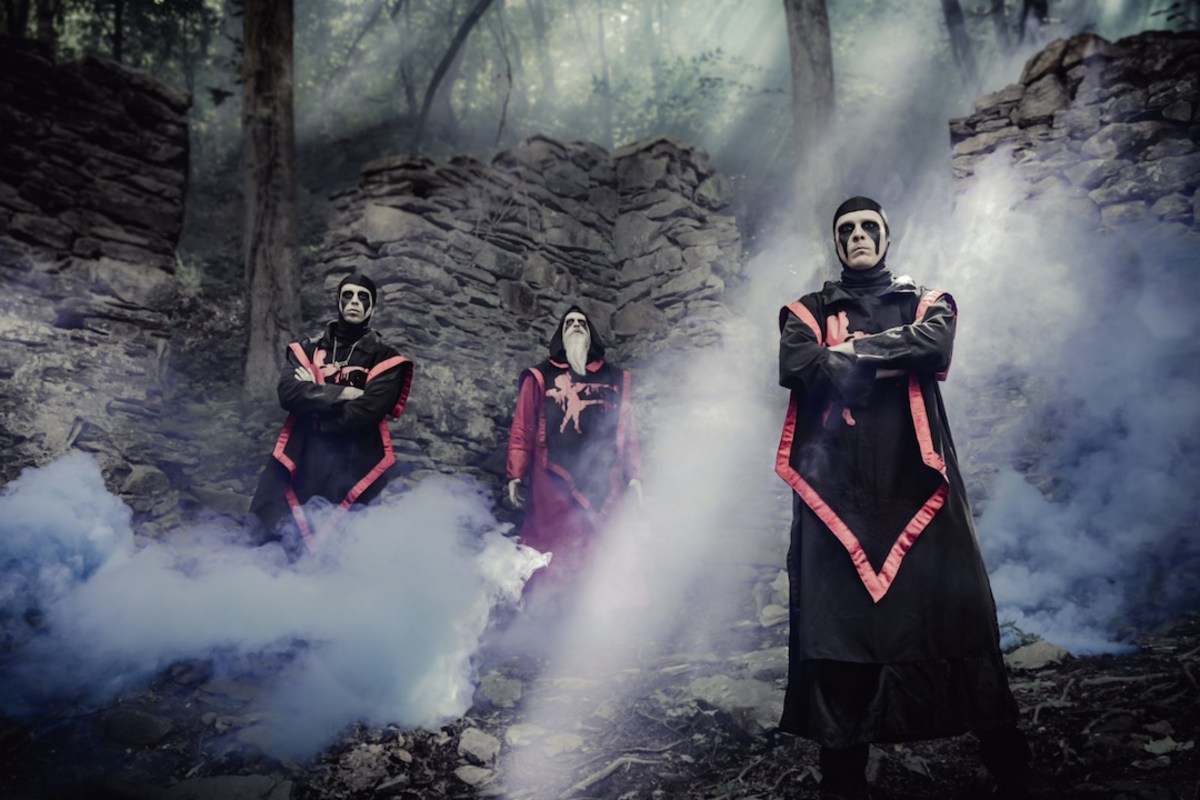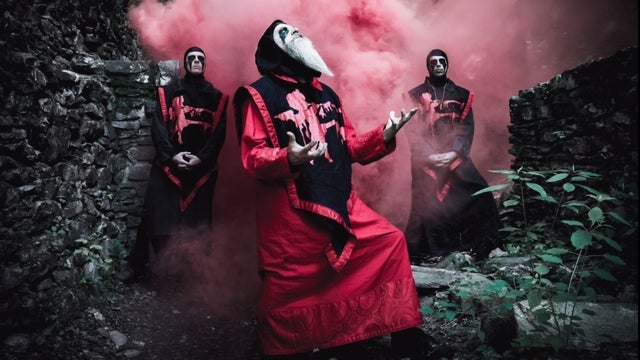Profanatica: Blasphemy, American Black Metal, and the
Sovereign Vision of Paul Ledney
I. Origins and Early Defiance
Profanatica’s genesis lies in a pivotal moment in extreme Metal history.
In 1990, Paul Ledney, Aragon Amori, and Brett Makowski broke away from the
nascent Death Metal outfit Incantation; Ledney claims they carried the creative
energy with them and left John McEntee to continue under that name. The trio
pivoted decisively toward blasphemous Black Metal, forming one of the first
American bands to fully embrace the aesthetic of the second wave,
contemporaneously with Von and Necrovore. Recording under the Profanatica name,
they released seminal demos in 1990 “Putrescence of…” and “Broken Throne of
Christ”, which caught the attention of After World Records. In 1991, they
issued the “Weeping in Heaven” EP, limited to 500 hand-numbered copies: its
raw, unfiltered sound and lyrical content establishing early notoriety.
II. Blasphemous Spectacle and the Vanished Debut
Profanatica quickly garnered a reputation for live performances laden with sacrilegious imagery and shocking spectacle, aesthetic extremity that spread through tape-trading networks and elite underground circles. A pivotal event in their early history involved a studio session in 1992, intended to deliver their debut full-length, variously titled “The Raping of the Virgin Mary” or “Sodomy of Sacred Assholes”. Ledney later alleged these master tapes were destroyed, possibly wiped by band members, and the project collapsed shortly after. This mythic loss elevated the early Profanatica output to mythic status among fans.
III. Resurrection and the Cult of Blasphemy
Reactivated in 2001, Profanatica was resurrected by Ledney with new collaborators. Their first full-length album, “Profanatitas de Domonatia” (2007), was released via Hells Headbangers and reaffirmed their brutal, unpolished sound, chainsaw riffs, blast-beat chaos, and explicit blasphemous themes. This was followed by “Disgusting Blasphemies Against God” (2010), “Thy Kingdom Cum” (2013), “The Curling Flame of Blasphemy” (2016), “Rotting Incarnation of God” (2019), and “Crux Simplex” (2023). Alongside full-lengths, Profanatica issued compelling EPs including “Altar of the Virgin Whore” (2018), “Pale Fuck” (2022), and “Wreathed in Dead Angels” (2025), and delivered live documentation through DVDs such as “The Enemy of Virtue”.
IV. Sonic Identity and Ideological Core
Profanatica’s music is steeped in brash, primitive Black Metal, heavily influenced by pioneers such as Venom, Bathory, Possessed, Hellhammer, Sarcófago, and Necrovore, yet Ledney distinguishes Profanatica from European Black Metal, criticizing the latter’s tendencies toward melodic clean production and one-man constructs. He positions American Black Metal as rawer, more influenced by Death Metal and Punk and refuses to conform to the stylistic trends of Norway or Sweden. Ledney’s vision is rooted in individual sovereignty, anti-Christian blasphemy, and self-deified freedom. In interviews, he encourages self-rule, rejecting external moral systems, and urges fans to embody autonomy, an ethos aligned with Thelemic spiritual ideals.
V. Notoriety, Controversy, and Legacy in Extremity
Profanatica’s lyrics, promotional imagery, and live acts embraced extremity: violent, sexual, profane, often flouting religious morality. Titles like "Broken Jew", "Sacramental Cum", and "Mocked, Scourged and Shit Upon" underline their commitment to transgression, not for shock’s sake, but as ritual provocation. They remain influential in the American underground. Reddit discussions label Profanatica as the first truly intentional Black Metal band in the United States, distinct from earlier proto-Death Metal acts. Live shows, described as punishing, uncompromising, and legendary in their intensity, have fuelled their mythos.
VI. International Reach and Formal Recognition
Signing to Season of Mist in 2019, Profanatica gained wider distribution and visibility while retaining their uncompromising aesthetic. Rotting Incarnation of God emerged as a benchmark of crude, caustic Black Metal, maintaining primitive riff violence with modern clarity and visceral impact. “Crux Simplex” followed in 2023, a thematically intense album built around the Stations of the Cross metaphor and characterized by furious riffs and ritual structure. They toured Europe extensively, played major festivals, and headlined international dates, a stark contrast from their early obscurity.
VII. Analytical Reflection: Ritual, Extremity, and Authenticity
Profanatica’s trajectory offers fertile ground for scholarly reflection. They embody a dialectic between primal aggression and symbolic ritual. Where Norwegian Black Metal often romanticizes cold landscapes or pagan myth, Profanatica enacts desecration as performative theology. Their music insists on ritual catharsis, not aesthetic distance. From an academic perspective, Profanatica’s practice gestures toward liminal performance theory, using visceral music, provocative imagery, and confrontational lyrics to disrupt conventional religious paradigms. The listener is not passive; they are implicated in the transgressive logic of the sound.
Ledney’s emphasis on authenticity, his rejection of European elitism, and his insistence on guts-over-glamor position Profanatica as a counter-narrative in Black Metal, a voice of primal rebellion against uniformity and domestication.
VIII. Conclusion: The Unyielding Flame of Blasphemy
Profanatica’s story is one of purposeful extremity: from New York
basements to global stages, from demos to ritual albums, shedding norms and
performing Black Metal as a declaration of individual divine agency. Paul
Ledney’s unrelenting ideology, rooted in blasphemy and sovereignty, has
propelled the group through decades without compromise. While the Norwegian
wave made Black Metal a style, Profanatica made it a cult, an art of
desecration, a ritual of power. Each album, EP, and live show reinforces that
ethos. Today, as they continue touring and creating, Profanatica stands not
merely as a band, but as a bastion of unfiltered Black Metal ideology: savage,
anti-hierarchical, and eternally profane.


Comentários
Enviar um comentário